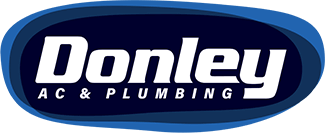Avoiding A/C Meltdowns With Extreme Heat
Date: July 2, 2020
Written by Charlotte Schaff and featured on NorthPhoenixFamily.com on July 2, 2020.
As we prepare for extreme heat later this summer, Donley Service Center offers advice on keeping your home cool without emptying your wallet. And check out how to avoid the most common A/C meltdowns. After all we have several months of warm weather on the horizon.
Change your air filter
Our dry, dusty climate can quickly clog your filter, which can lead to higher energy bills and more repairs. It’s a good idea to clean or replace your filter every month.
Clearing and cooling the area
Planting shrubs or trees can provide shade to the a/c unit, which leads to less electricity being used. But, not too close or you’ll restrict airflow. Make sure the area is free of leaves, weeds and debris.
Seal the leaks
The fastest way to save money is to use caulk or weather-stripping on your doors and windows.
Set it and forget it
You won’t conserve energy by constantly changing the thermostat. Set it at the highest comfortable level and leave it. Or, try a programmable thermostat that will automatically adjust for times you are away and sleeping. Note: Keep your set back point 4 degrees or less when setting a programmable thermostat.
Run ceiling fans counter-clockwise
During summer your fan’s blades should rotate counter-clockwise to blow air downward. Turn the fan off when no one’s in the room.
Move the lamps
Thermostats can pick up the heat from lamps, TV’s and appliances, so keep them away.
Invest in sunscreen
Keep blinds and drapes closed and install sunscreens to keep the heat out.
Most common A/C meltdowns include:
Noises
Loose parts, a broken belt, and a dying compressor can lead to banging, grinding and squealing sounds. The sooner you catch and repair, the better.
Keeps Running
If it seems your A/C runs a lot, but your home isn’t that cool it could be a sign that your unit is nearing a breakdown.
Different Temperatures
If some rooms are much cooler or warmer than others, it could be a sign that your A/C is not working properly.
High Electrical Bills
Exceptionally high bills can be a key indicator of A/C trouble. Clogged filters and a damaged compressor can force the A/C to work overtime and struggle to produce cold air.
Old Unit
Although the Environmental Protection Agency says the average air conditioner lasts 15 to 20 years, in Arizona we generally experience a shorter life span – closer to 12 to 15 years. The Environmental Protection Agency (EPA) is phased out HCFC-22, also known as R-22 and the EPA no longer allows it in 2020. You may want to consider replacing an old unit with a more efficient model. Regardless of age, properly maintained units that are checked annually by qualified technicians last the longest and run the most efficiently during our summers.
